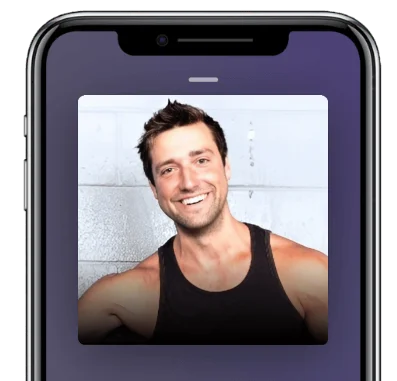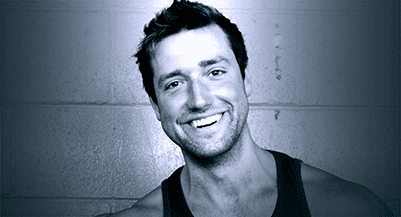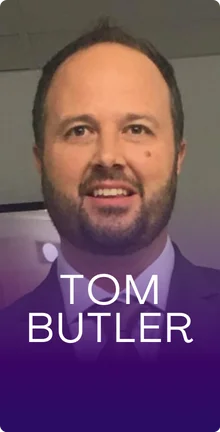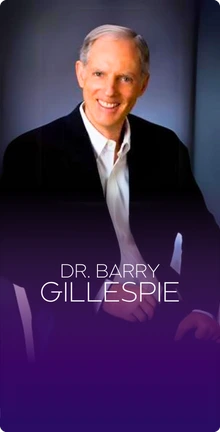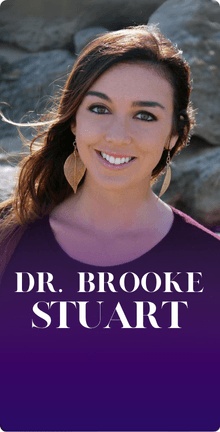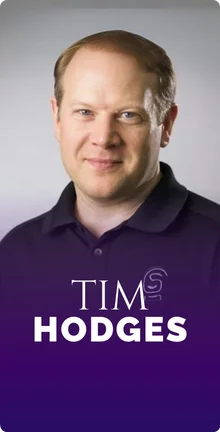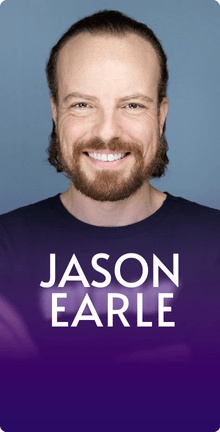In this Episode
- [00:39]Stephan introduces Aaron Alexander, a manual therapist, movement coach, author, and host of the Align Podcast.
- [06:19]Aaron explains the physical session techniques he does with clients to enhance body structure.
- [13:34]Aaron indicates how observing yourself can keep you away from getting stuck to your patterns.
- [19:28]Aaron talks about how getting a massage is so valuable when it comes to self-care.
- [25:31]Aaron explains the term he coined, “molds”, why it forms your sense of identity, and how to deal with them.
- [31:08]Aaron shares activities you can do at home to shift your mindset and make changes in your life.
- [37:06]Tips on how to detach yourself from external things?
- [44:17]Aaron describes his idea of freedom. He also shares the inspiration behind wanting to live a minimalist lifestyle.
- [49:17]Aaron talks about his book and his online program, The Align Method.
- [56:24]Follow Aaron Alexander on his social media accounts, and visit his website alignpodcast.com to check out his book, masterclass, and podcast.
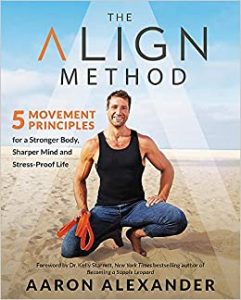
Aaron, it’s so great to have you on the show.
Thanks so much for having me, man. I appreciate it.
So we met at an event run by our good friends who started TUSOL, the smoothie healthy lifestyle brand. First of all, I just wanted to give them a shout out. Tusol is such an amazing new product. I’m recording this from Tel Aviv right now, and we brought some Tusol smoothies with us, so we’ll be able to enjoy them here in Israel. So how have you gotten to know the folks at Tusol?
How do I? I guess through Neil Strauss originally. I reached out to him through mutual friends to have him on my podcast, like years ago, and then ended up connecting with Ingrid, and I was super surprised and impressed how congruent our perspectives were on many things, and then we’ve just become buds through that.
Similar situation for me, I’ve known Neil for years and met him at a Tim Ferriss event called Opening the Kimono® back in 2010. And then I spoke at his second ever society intensive, and then I joined the society after that, been in it for, I don’t know, seven years or more. And then, of course, through that I met Ingrid and helped support them with their launch, gave them some SEO and internet marketing advice and they’re doing great.
What a great name. The Society sounds so mysterious.
It does. Ironically, it’s a secret society that has a website that kind of doesn’t seem to jive, I don’t know, but it’s a great group, I’ve enjoyed it. Anyways, how do you help somebody who has, let’s say back trouble, or they’re not moving enough, or they are maybe overtraining, or whatever that issue is, it’s something physical? Where do you start, and how do you get them back on the path?
Pain can express itself in all sorts of very different interesting places throughout the body.
It depends, there’re so many different variables at play with something like that, so just because someone is experiencing pain somewhere in their spine or their hip or anywhere, doesn’t necessarily mean that that the issue is coming directly from that place, even if there is some nagging, pulling compensation or twisting or torquing kind of manifesting itself in that specific area. It doesn’t mean that we just need to be drilling down on that spot. And there is also a potential that it could be a bit more, like psychosomatic, where there’s an emotional or mental tension that’s contracting the person’s nervous system and is creating this signal saying the bigger “I” is in pain, I need some help.
Pain can express itself in all sorts of very different interesting places throughout the body, and I think the first starting place with anything is just having a conversation and checking out somebody’s lifestyle and saying, “Okay, how do you occupy yourself from a mechanical perspective and a physical perspective?” “Are you in positions that if you were the structure of a building, I’d be like, ‘Oh, no, no, you don’t want to build your structure in that way. Gravity pushing down on that building all day long, it’s like you’re asking for an accident to happen.'” If that’s a very easy place to start, most people can buy that quite easily, it’s tangible, it’s measurable.
And then from there, I think having a conversation of how is the function of your mind and your thoughts. If you’re in a place where you continually have this mental and emotional turmoil, and you feel like the world’s out to get you. You feel like you need to be in some defense or fight or flight type state because maybe something happened even before your memories. Maybe something happened that caused your nervous system to have the belief that the world’s not safe out there. And you haven’t quite gotten over that hump of letting that go because it feels like that belief system is still serving you. After all, you’re an organism that doesn’t want to die. And so it’s chronically in that place of batten down the hatches kind of hunched forward, clench the jaw, clenched the fist, and kind of get through this thing. I go from two different, seemingly disparate paths, but they are continually circling back with each other. It’s a double helix, that kind of wiring back through each other over and over again, and I think they’re essentially the same path.
Everything is a gift. There's always an opportunity for you to understand something in a more profound way than you have. Share on XHow would you find out that somebody had some, let’s say birth trauma or very early childhood trauma? Are you doing kind of hypnotherapy or some sort of regression? How do you figure this out?
I’m a physical guy, and all that stuff is beyond my scope. If someone goes into something where it is, “I was abused in whatever fashion,” I do my damnedest to create a safe space and container for the person to be able to feel whatever it is they need, and my role is to be an anchor. And beyond that, I’m not trying to go in as a technician and start tooling their parts. I’d open that up for somebody else, that’s what they’ve spent their life focusing on, but a lot can happen in a session with somebody just through moving the body. So I do a combination, less these days because of the book, I have online programs and different other things, but I still do actively see clients, it’s just much less.
And to change the body, I use my hands and elbows and kind of movement coaching techniques. Sometimes, I’ll take them through yoga poses and do bodywork with them at the same time. Sometimes, it’ll be adjusting, and we’ll do some training stuff that’s focusing on reconstituting and reorganizing their body through specific exercises. I just let it be what is during a session, I’m not trying to go in like a technician with specific things and hypnotize anybody or anything like that. I focus on the body, and a lot of magical things can happen to the person’s physical structure and identity structure simultaneously. I have the belief that you can’t change one without changing the other.
I have the belief that you can’t change one without changing the other.
So if you’re a person that moves through the world, and you’re kind of like turtle-ish, and you’ve got the forward head posture stuff, and your shoulders are kind of rolled forward, and maybe even have like, a scoliotic spine pattern where your spine kind of wanders left and wonders right. It’s almost like you’re trying to hide inside of your skin in a way. So there’s a much higher incidence of scoliosis among adolescent girls, which is, perhaps, there could be some correlation of like, their body is going through this really interesting change around that time of puberty. All of a sudden, men are looking at them as prey animals, their bodies doing all these crazy things, or maybe they weren’t even told about what a period is. There’s like a lot of reasons for that individual to perhaps feel like, “Well, I kind of just want to hide. I don’t want to be seen right now, this feels a little funny,” there’s a physical manifestation of a person wanting to hide.
I’m not saying this as considered idiopathic, we don’t know exactly why that is. By no means, I’m not saying like, “This is why it is.” But, interestingly, there is that connection that there are friends of a person mentally, emotionally, who want to hide, physically there will be an expression of that. And if you can physically coax that person to come out and express patterns that are a bit more stacked, aligned, balanced, expressive, open – all of those words, then you would end up affecting the way that person thinks and perceives themselves. They can’t look into the mirror and see a different person at that point, or that change just won’t happen. I’m not trying to be like a jack of all trades, I focus on the physical. Over the last 15 years or so of doing that, I’ve just seen it enough that people change beyond just their elbows and their shoulders. They’re connected.
Great. And people will supposedly store trauma in different parts of their bodies. And if you work on freeing up those body parts, it can free up the trauma, that’s from what I understand.
Yes, that’s a really big conversation, and I don’t know that there’s a specific place in the body, like I don’t have a strong sensation about. If there’s some fear then it’s like a liver issue or if you have mother issues and it’s something going on in your kidney. I don’t have a specific one to one like, “Here’s the geography, the topography, the map of, if this happened in your life and all of a sudden your elbow is going to express some kind of condition.” I don’t disagree with that, and I haven’t felt that and to be very embodied like, “Okay, like that’s the way it is.” But something I can tangibly know and bank on is that when you are scared, I can tell that you’re scared.
When a human or animal feels a certain way, the physical body expresses a certain way.
Look at a dog, what does a dog do when they feel like they did something wrong? You do have the picture in your head, they shrink up, and they want to get smaller. They’re not going to be boastful and proud and playful at that moment. That’s a different physical, mental, emotional expression. What does the person feel like when they are proud? What does a person feel like when they feel super safe? What’s the person physically expressed when they feel love? Like, “Wow, man, I’m not worried about anything. I feel just at home.” What does that person express and their facial mannerisms, their postural patterns?
Paul Ekman is a guy that I’ve had on my podcast, and he’s studied facial expressions of different tribes and spirits, different humans all around the world, animals as well. And he went and spent a bunch of time in Papua New Guinea and various places I’m planning on going to Papua New Guinea this winter, which is exciting, we’ll see if it’s permitted. But what he found out there, this was kind of going against Charles Darwin‘s perspectives. That facial mannerisms, facial gestures, the belief was that they are something that’s learned. So if you’re in New York, you might have slightly different facial gestures than if you’re in California or Papua New Guinea. We found out that this is universal. This is like human DNA stuff.
When the human-animal feels a certain way, the physical body expresses a certain way. You get into gestures with your hands and stuff, like everybody throws the same gang sign universally, that stuff is learned, but those deep mammalian, reptilian reflexes that are a part of the hardwire, that’s millions of years old. When you can start to tap into those parts, it’s pretty fascinating. And the really interesting thing beyond that, when you do start to look at that as it starts to give you compassion and empathy for other people because you’re like, “Yeah, we’re all running on the same switchboard here.”
When someone says, “I wear red, and you wear blue.” I do this with my hand, and we have this handshake thing that you don’t understand. That kind of creates a little bit of separation, which is nice because we want to feel like we’re part of a tribe, we want to feel like, “I’m in the society. I want to be a part of a special group that makes me feel loved and connected and tribal.” And if the group gets too big, then it gets weird, but it’s like, “Oh, a special thing that I’m a part of.” But then behind all of that, it is like, “Oh, we’re just all running on the same schematics, we’re just a continuation of that same hereditary pattern,” which I think is great.
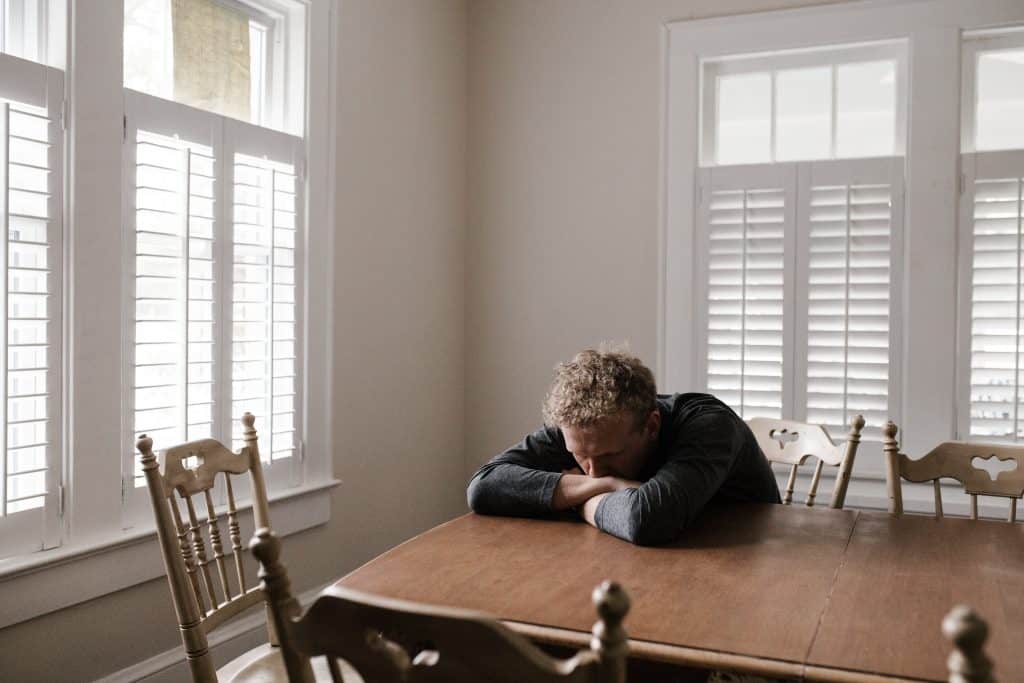
That reminds me of Dr. Gottman‘s research, where he found that by studying micro-expressions, he was able to predict whether couples would stay together. Even just with a minute or two of watching them, he could predict with 90 percent accuracy if they were going to be together in five years.
It’s so simple. So if you give a thing about business or relationships, which is the same thing, really becoming sensitive to what are these little micro expressions? What is the meaning of all of these? And a great place to start with is, what is the meaning within my own? So having just a bit of introspection and kind of observing yourself throughout the day, and being honest with yourself. It’s like, “Wow, as I’m walking down the street here, my leg kind of drags behind me here, and my glutes don’t feel very strong, and my spine kind of curls in this direction, and my shoulders kind of cover and protect a little bit, and I always got this tension in my wrist as I’m holding a cell phone so much.” “Maybe I got that resting b****face, furrowed brow type thing going on all the time.”
I’m like, “What am I saying?” Because I’m going through the world like, “Why didn’t I get that job? Why didn’t that person think I was attractive? Why don’t I be financially successful in meeting the goals that I would like?” Perhaps literally physically, you’re within the confines of a body that says no. You’re within the confines of a body that feels maybe like it’s almost like a Stockholm Syndrome with your physical patterns. You’re like, “Oh no, these patterns they get me through.” No, these patterns keep you stuck. I think a great starting point is to become honest. And I have a little exercise in my book where you go through and give each major joint in your body, and I think I asked you to do like three adjectives.
You express the way that your body is.
So tell me, how you describe the personality characteristics of your ankles, your knees, your hips, your spine, your shoulders, your neck, your head – head is not a major joint, although there are a lot of joints within it – and you go through, and you get this collection of these personality traits, essentially of your physical body. And what you’ll find is like, “Oh, that’s me,” as you go through, and you express the way that your body is. What you have is yourself, you have the way that you navigate the world. And so a great place is to become interested in what is the meaning of my movement, beyond just, “Do I deadlift more? Bench press more or something?” And then from there, inevitably, if you look at yourself enough, you can’t see that in other people. It’s a magical experience for you to have all sorts of seeming dysfunctions, quotations, imbalances or injuries or anything like that.
Everyone is a gift, everyone is an opportunity for you to understand something deeper than you could, had you not gone into that rabbit hole of my back hurts, or I’m experiencing depression, or my knee hurts all those things. It’s like from there, you have the opportunity to understand and empathize with people that are going down that path, and then you can learn to march yourself back through it. And it becomes then from that point, you’re like, “I’m responsible for this stuff,” as opposed to blaming all this stuff on other people. No, everything in my reality I created, from there, I have a little bit of traction to move forward from that point. I know those are kind of separate thoughts, but I think it’s all connected.
That’s cool. Did you have any epiphanies while you were doing this process with yourself? I presume that you went through and figured out all the different adjectives or states or whatever that you assigned to each of your joints, any epiphanies there?
Yeah, man, I’ve had a lot of stiffness around my thoracic spine, like heart territory. And that shows up in a relationship where I have a bit of like, still lingering sensations of fear of commitment, and in which way I think probably trickle back into a fear of being left type sensation. Neil Strauss, in my podcast, he cracked open some different nuggets about that. And I think that it would make sense that I’ve had this sensation of the weight of sorts, in my thoracic spine, heart territory.
It’s interesting, like, if you’re really in love, you can feel it in your heart. It’s a fascinating experience when you have those moments, you’re like, all the fluffy, nonsensical, meta new-age talk, like, “You can feel it in your heart.” Like if you miss somebody and you care like it’s in there. And you have different neurons just like you have in your brain around the tissue of your heart and the tissue in your guts. When you have a gut feeling, that is an extension of your brain. The idea that you are not just between your temporal lobes here, you are your whole body. I would say you are much more than that as well, you are your everything, your environment, I would say your parents, I would say your house. That’s what makes humans interesting is our capacity to adapt to any environment.
You are not just between your temporal lobes, you are your whole body.
But the interesting thing for me was, if I’m honest, I think I’ve been a bit frozen in that part of my life, and then that expresses itself in the way that I move through the world. And then there are all sorts of other compensatory patterns that manifest themselves as a product of being like, okay, perhaps there’s some sensation of like not being-this is very, kind of like fluffy, new age therapy talk. So I apologize in advance if there are any words that people are like, “Oh boy tuning out,” – but that was something that if I’m honest with that, that was a fascinating thing to look at and start almost like massaging open those spaces around the ribs. That was a thing for me going and getting massages.
I’ve been a bodyworker and a trainer and been helping other people’s bodies for the last 17 years or something, it’s like the origin of starting with doing that. But I never really got a lot of bodywork myself unless I was in school. But I started going regularly and getting massages and specifically focusing around the chest, ribs, back, hips, and all those places that are so valuable. And just that action of being willing to be like, “Okay, I’m worth being taken care of,” which would probably resonate with a lot of people. That’s a really big deal. So even if the massage is just a metaphor, whatever it is, that gets you to be in that position where you’re like, “I am worth being taken care of. I don’t need to be the savior. I don’t need to show up and be the big, strong, heroic, whatever. I can just lay here and be taken care of, and that’s completely fine.” So I think that was very valuable for me.
That’s so cool. And did you find that there was some healing or some breakthroughs that happened from the realization and from the bodywork that you went through the massages and that?
I don’t know that there’s a one-to-one relationship. It’s tough to say like the question of the chicken or the egg with anything. I think everything again, it’s the double helix thing. It’s all these spirals circling back, and sometimes they bumped into each other, and you’re like, “I feel like I’m in the same place but at a higher level.” “Maybe I feel like I’m in the same place but at a lower level.” But I think it’s these paths seem to be meandering, but then they eventually intersect. And I think the massage is, just as that as a singular example, would just be correlated to that general movement in that direction and have started to kind of really look and say, like, “Where am I hurting?” “Where am I stifling my growth?” “Where am I afraid?”
Just because someone is experiencing pain somewhere in their body doesn't necessarily mean the issue comes directly from that specific area. Share on XAnd I would say the massage certainly helps with that. I wouldn’t necessarily say that like, that was the reason that I’ve felt like today I’m more in a position to fall in love with a person. And recently I’ve been in a relationship with a person like, “Oh, I love you.” We love each other like, “Wow, I haven’t felt safe and good to say that for a decade.” And so that’s a pretty interesting thing to see that progression, and I would say bodywork certainly is a major part of it. But I wouldn’t necessarily put all of that like that was the solution, I think that was a part of a general march.
Gotcha. I guess I would put these kinds of body therapies into two categories, the kind of temporary, maintenance type things. Maybe they help a little bit. Cumulatively, I’m sure that’s a great help, but then there’s the stuff that will just break you through. A one-time adjustment or some session of some type can open a door, and you’re never the same again.
I’ve heard about Atlas Therapy, I haven’t done it, but apparently, you only need to do it once. And that’s a kind of a special kind of maybe chiropractic adjustment, I guess. I’ve had oneness blessings that there was one, in particular, that was a spiritual awakening for me in India, and I was agnostic my whole life before that. So that was a permanent one-time shift breakthrough, an epiphany.
Other modalities offer those kinds of things, I just had Dr. Barry Gillespie on the podcast recently, and he’s the creator of Craniosacral Fascial Therapy (CFT), and you can with one, two, maybe three sessions have a permanent breakthrough. He specializes in babies, infants in particular, and all the stress they go through through the birth, and all the practitioners who practice CFT can cause a huge epiphany, breakthrough, and kind of state shift with one session. It’s pretty cool.
The human experience is like a ship, and it’s moving in a direction.
Yeah. I think the human body, human experience is kind of like a ship, and it’s moving in a direction. Sometimes, maybe in your life, you might hit an iceberg, or you might run into a big storm, or you might have some big course correct, or someone comes and says, “Hey, your compass is off, you’re going in the wrong direction. We’re going to reset your compass.” And within that, though, I think in the kind of allopathic pharmaceutical culture that we, as Westerners, have kind of been indoctrinated, that sounds great. To have those experiences where it’s like I did the one thing and then that was it, but within that, I think that if you do that one thing and then your physical structure and perhaps your mind at that moment has shifted. But then you come back to the same relationship, you come back to the same house, you come back to the same car, you come back for the same job, you come back to that mold that continually forms your sense of identity itself, your physical body, perhaps even the chemicals in your laundry detergent.
All of those things bring you back to your set point of where you were. So, if you go to Peru and you do some major Ayahuasca ceremony thing, and you come back a new person, and you’re all light and shiny for the first week, and people are like, “Whoa, like what happened?” You’re like, “Man, Ayahuasca,” but then you go back, and you run those same repetitions of the same things that you’ve been doing for the last 20 years, good luck with maintaining that shine. You need to look at this system holistically, again, not from like a new age fluffy version, just look at all of the different coordinates, all the different angles in your world. And see like maybe go home after you have one of those shiny, pearly magical, angelic experiences and look at your closet, and say, “This clothing, the colors of these clothes, the tightness, the fabrics, all of that stuff, does this represent my ideal version of myself?” Yes or no? Or like laying out in a bed, “Is this who I ideally want to be in? Is this it?” If the answer is yes, you’re on a great track. If the answer is no, adjust, throw it away, get rid of it, give it a go, it’ll help somebody else. Somebody else probably wants to be at that point, in that expression of those colors, let it go.
Come back and look at the paintings on your wall, look at the shape of your house, let’s say, “Oh, I like that couch,” and “I have the coffee table in front of that, it’s filled up with maybe a bunch of photos of stuff maybe I don’t care about,” or “books that don’t relate to me, or maybe I’m hanging on to some old trophy from when I was a wrestler in high school or whatever. Is this me anymore? “You’re like, “What am I hanging on to here?” These memories of the past, “Why am I so attached to these things?” And then I have the big TV on the wall, and I go in like, “What kind of human organism does this mold create?” I’ve got the big couch, got the table covered with stuff, and then I got the TV in front of that, and then I got the dinner table beside that and the chairs, like, that’s my place. My place is a sitting habitat; it’s like a sitting zoo. So I go in, and I collapse onto the couch, and I stare into the wall, and then I hunch into the blue-lit refrigerator, and I pull out some processed foods, and then I put them in the microwave, and then I sit down on my table. And another 90-degree angle with my hips and my knees and my ankles in the same position I’ve been since I woke up in the morning off of my raised bed, and then I got into my car, and then I went to the office and sat and stared at the screen. And then I got back into the car, and then I went to the gym, and I did the sitting workout machine things, then I got back into the car, and I was like, “Woah!”
And then you’ve topped off the day with Netflix.
The great starting point of making heroic changes in your life is examining your home environment.
And then you’re like, “Man, I could use a sit on a comfy chair this time and stare into a bigger screen in my house with the air perfectly set to 69 degrees or whatever.” It’s like dude, if you were a zoo animal in which you are a hundred percent, you are a wild Homosapien that’s been placed into this fascinating zoo habitat. It’d be like what the hell kind of animal are you forming in that environment? Is that what your ideal version of yourself would be? If you were a six-year-old kid pretending to be Batman in your backyard, climbing trees and rolling through piles of leaves and be like, “Man, if I could be anything I’d want to be that hunched over, stuck in hip flexion zoo animal.” You’re like “No, be a hero. Change that up!”
You don’t need to do anything crazy, you don’t need to buy a muscle car and go 130 miles down the road to be a hero, you can start just taking care of yourself at a cellular level. Maybe when instead of being in that same hunched over, being in that same sitting position, for whatever reason, we’ve got placed into since age five, you learn to be a cog in a bigger system, you learn to work your way up the corporate hierarchy from age five. Before that, you have all this amazing imagination and adventure and sense of wonderment, and then all of that stuff means you’re sick. If you’re sitting in that chair inside that air-conditioned room staring into those books and now staring into those screens, wearing out your eyes, and like your body at a cellular level saying, “Please feed me sun and adventure, please I’m dying.” And then within that system, if you start to listen to those cells speak up, now all of a sudden, the guidance counselor and the teachers are like, “Oh, this boy is sick. We need some meds.”
Yeah, and then you are acting out, but they’re just being a kid.
“What’s he acting out about? What’s going on here?” And then, from there, we start labeling all these different things, “Maybe he’s got ADHD,” all of a sudden he’s feeling anxious, “What’s this anxiety about?” “I think maybe he needs to take anxiety medication.” “Oh, he seemed sad now. I think we need to get him something for that.” It’s like if you go against that inner urge to do all those things that I think young kids naturally kind of lean towards, the human-animal will act up. I think that that’s a roundabout way of saying come back immediately, the way to make heroic changes in your life is just examining your home environment would be a great starting point. Maybe make your workstation near a window and open it and have some fresh air come in so you can breathe in the fight insides and the various chemicals that boost your immune system, which is like such a big deal now.
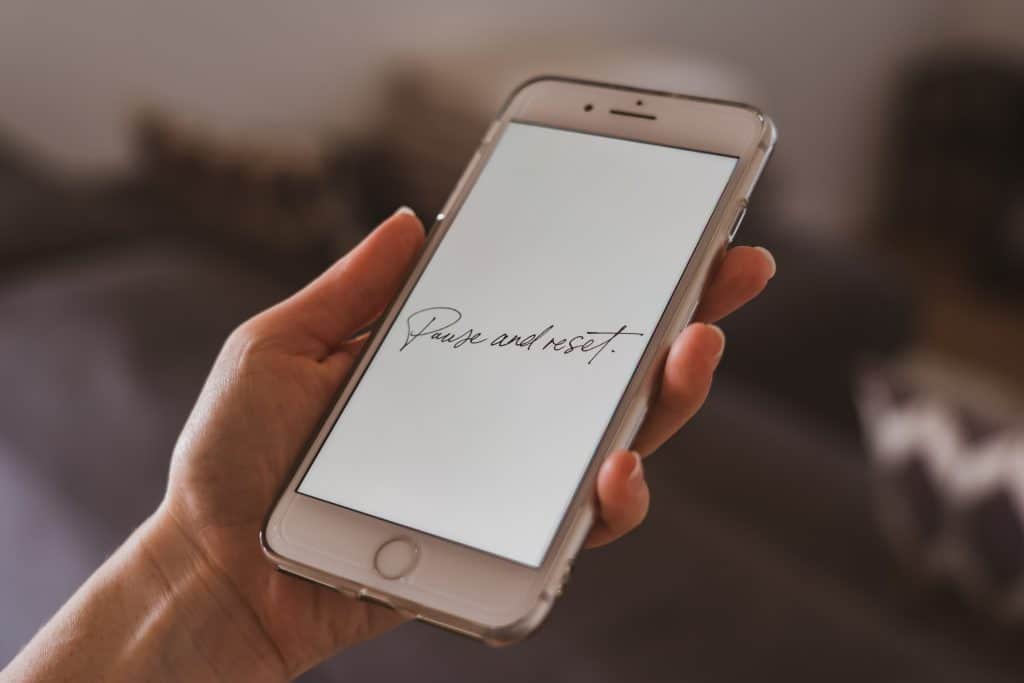
Why don’t we actually do the things that help condone a healthy immune system right now, expose your eyes and skin to the sun, take your shirt off, wear some shorts, get barefoot. You need nature, you are nature, you need to have that grounding, you need to have good water, you need to be able to breathe fresh air, you need to be able to move your body in a full range of motion. It’s very simple and pretty darn close to free to nurture the human body, but we kind of get wrapped up in the need that we need to reach out and purchase something that maybe we can’t afford, to be healthy. Coming through and just eating your bagel and cream cheese, or you fish lox, or whatever you do in the morning, maybe instead of sitting on the dinner table as a good adult American, maybe why don’t you go out to your back porch or anywhere, you get yourself a little like cushion and sit your butt all the way down on the ground like your ancestors have done forever, and people that still have healthy hips and knees and ankles still do all around the world.
It’s much more common for you to squat and kneel and go into – in the book, we call them archetypal positions of repose – those positions that you’ve naturally done forever, they act as tuning mechanisms for your entire body. And so throughout the day, you’re holding certain positions to be a specialist in whatever it is that you do that’s essentially untuning the guitar in a sense, those positions that you naturally would come back to where you lay down, and you opened up, you sprawled out on the ground, maybe you roll over, you squat down in your hunches for a little bit, you kneel for a second, you’re gathering water or washing your clothes by a river, whatever you would do, all of those positions, they start to flush all of those joints with new synovial fluid, and they move lymphatic fluids, circulate your blood, and they turn your brain on. So all of these positions, the body knows what to do. We just have so much momentum kind of going against those natural reflexes. And that was a very long rant, I apologize.
You need nature, you are nature, you need to have that grounding, you need to have good water, you need to be able to breathe fresh air, you need to be able to move your body in a full range of motion.
I thought of a few different things I wanted to mention as you were talking. One is I realized, during the 40 years of Zen process that I did, which was a week-long program in the Seattle area, it’s a company owned by Dave Asprey, the Bulletproof Coffee Guy. And it was transformative, it was incredibly powerful, it unlocked memories I hadn’t had since, I don’t know in 40 some years, memories from my early childhood, it was so cool. And I didn’t maintain and water the new flowers, when I got back, I didn’t develop a routine or regimen of daily meditations or anything like that. So essentially, I trampled over all those new little flowers and didn’t leverage that very expensive investment in that 40 Years of Zen program, which is unfortunate. But it’s a great example of what you were describing of getting your environment and your rituals and everything to be in sync or get it aligned with the big transformation you just had.
And within that, I find some of those things to be somewhat alienating for people that aren’t super wealthy, not to say that you are alienated by talking about that, you’re just interested, and you want to explore and see what kind of potentials you can find out in this experience. But nobody needs those experiences. Now it’s becoming legalized to explore Psilocybin Therapy, MDMA Therapy, and Ketamine Therapy, and there are ways to travel, and they’re fairly cost-effective that you can explore from your town, or maybe you could go to whatever town that exists. And then beyond that, we just need to shake up the snowglobe.
Everything gets set in place, and then you’re like, “Okay, I’m in my tunnel, I’m gonna keep going forward, this is what I care about,” it’s like I don’t even know if you know what you care about. You know what you care about from that position that you formed over the last however long, but if you get shaken up. Like I’m planning to move to Austin, Texas, in a little bit, then I’m planning on traveling for the winters as a plan, we’ll see what the world has in store for me. But in those situations, I value relocating myself for any amount of time. Because in that time, you have the opportunity to take the things that served you, and leave the things behind that didn’t, and then create what’s genuinely real.
In the world that we live in, truly autonomous human creatures don’t feel dependent on outside forces to feel well.
In those opportunities, you can say, “I’m on a new canvas right now. Crazy. What if I paint with yellow?” “I’m gonna draw this weird kind of spiny tree that looks like a Van Gogh painting.” “I never thought I could do that.” It was because you were so built up within that previous canvas; there were already so many colors on the palette. That’s why meditation is a really powerful tool as well; it’s the active version of clearing the palette in a sense or at least reducing the amount of weight that you put into each color on the palette. And if you meditate long enough, you see the color come in, you’re like, “Oh, I’ve seen that color come in 6000 times,” and saying the same thing. But instead of me attaching to it and causing me to run to the fridge or run to my cell phone and text that person or run to whatever, I’m just going to watch it.
If you sit back and watch it enough, eventually inevitably it loses that strength that it has over you. It’s fascinating that we have that ability. But in the world that we live in, truly autonomous human creatures don’t feel dependent on outside forces to feel well. That’s not very good for consumerism. If you’re selling stuff, you want a bunch of people that feel enslaved to purchasing crap to feel well. And so it’s a very strange kind of mix of currents going against each other. There’s like you that has everything that you’ve ever needed already, and then that’s riding right alongside that you that feels like you need to have at least a million dollars in the bank to be a man. And feels like you need to have at least this many cars and feel like you need to have this hot wife or girlfriend or whatever and feels like you need all these things. And then finally I’m good enough. I’m enough. It’s like there are two opposing forces.
If you do put enough weight into that place where you do clear that palette, then you start to see that force, and then you can start to generate compassion for that force, then you can have compassion for yourself like, “Man, I’ve been a slave for the last 30 years.” That’s great. I’ve been a slave to all these things that maybe were like socially acceptable addictions, money, power, women, men, whatever your thing is. But if you can step back beyond that be like, “Man, I’ve been just so flipping attached to all of these external things to feel okay,” I think that it’s a majorly supportive thing that a person can do for themselves. Just giving them the opportunity, almost like a forced snowglobe shake. Maybe it’s quarterly, maybe it’s bi-annually, whatever you can, shake your snow globe and step back and see where the pieces fall.
Physical health is all about maintenance. You don't just experience a significant breakthrough, feel brand new for one week, and then go back to your old ways as if nothing happened. Share on XGive yourself enough spaciousness in your life, whatever that looks like to you, it could be travel, it could be whatever you’re into, give yourself enough spaciousness to examine and say, “Okay, I value this piece, this piece I want to keep on the board.” But these other three pieces, I don’t think I need them. I feel way lighter without those pieces of what I deemed to be myself, but in fact, they were just these external kinds of addictions. And then from there, I think that with consistency, you’re gonna have a pretty cool human organism, you’re gonna have a pretty cool human experience. But if you just stay kind of stuck on the same board, and you think that’s the only board that you had the option to play for your whole life, maybe you got lucky, and you got a good board, but probably not. It’s unlikely that the first board you got was like the best board to play. I think it’s a good idea to kind of shuffle the pieces around with regularity and see what sticks.
For sure. What was the latest snowglobe shake that you did?
Humanity is going through a global snowglobe shake right now. So with the whole protests, riots, and all of the turmoil amongst people in real life, on social media, people just turn against each other. People are just angry, it’s like the, was it the Kübler-Ross stages of grief? I think culturally, and we’re going through some degree of stages of grief. The first is denial, and you go into, I think, anger, and then eventually it’s like, I forget what they are in order right now. Depression, and eventually you get to acceptance, and there’s five of them. But it’s irrelevant what the specific steps are, and it’s a perfect overlay as far as what culture is going through. But I think that we’re going through some degree of stages of grief or perhaps grieving over a past way of living in a sense, maybe the world’s going toward this technological direction.
Give yourself enough spaciousness in your life, whatever that looks like to you, it could be travel, it could be whatever you’re into.
This is gonna be a pretty pivotal era shift. I think there’s gonna be before COVID, after COVID. I think within that there’s a lot of people that are probably just like, “Arghh!” and then there’s oppression, and there are so many different layers of things going on right now. Like, “I can’t work, I can’t go to work.” “Will I be able to feed my kids” “Will I be able to feed myself?” “All those dreams that I had had, gone.” Not gone, transitioned. That’s worth grieving over as a society, I think. And yes, I’m a part of society, and so I think I’ve had an experience of just a lot more than is typical of observing what matters. What do I care about? I care about my podcasts, I care about my book. Do I care if anybody reads the book? Do I care if anybody listens to the conversation? What does it matter?
Being able to step back from that and I think it’s a healthy place to be. It can be dangerous because you can kind of lean towards a nihilistic apathetic depressive type direction, which is fine to explore. But ideally, that’s not the color I’d like to stick with on the canvas. But I want to have a little bit of that on the canvas because I want to stay grounded, I want to stay real and have those perspectives of like maybe nothing matters. And I think that’s a healthy thing to examine. That’s a place that I’ve been since March, I guess, is kind of like what do I care about? The outward physical expression of that now is okay, I want to get rid of everything that I own around my physical world.
There are other things that I technically own beyond my immediate world, but they don’t bother me, and they’re profitable and beneficial to make my life freer, which is nice. But as far as the material possessions that I have in front of me here, the sauna behind me and all the crap inside my apartment, whatnot, I’d like to get rid of all of that. And I’m going to transition to another place for a little bit and have a backpack essentially and have my grand snowglobe shake, I haven’t done it for four years, and so I’ve been feeling the itch to do that. So that’s where I’m at now, my material world is going down close to zero, and I’m going to change my geographical location and see what sticks from that.
I think the best thing that I can do is to lead by example, kind of going through the patterns is what feels intuitive.
Wow, so what about your clients, the athletes, the celebrities?
Oh, that’s fine. I think the best thing that I can do is to lead by example, kind of going through the patterns is what feels intuitive. The best free thing to do. And freedom can be having an anchor, that’s a big part of freedom having a good anchor. I don’t think if you’re becoming some monk and moving out to the mountains and having no possession. I don’t think that’s an idea like freedom per se, and it could be for an individual. But your idea of freedom could be having a big mansion and having a harem and having six cars in the driveway could be freedom for you. My idea of freedom is more like I want to open up as much bandwidth as I can in other directions by minimizing my physical distractions as far as my material stuff. That’s just where I’m at now though, everybody’s got a different idea for you, whatever makes you feel free. Go for it.
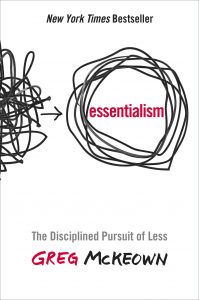
Okay, and I’m curious, where did you get the inspiration to try this? Was it a certain book like Essentialism or some sort of minimalist documentary? What inspired this?
Probably the people that I appreciate most as far as from a philosophical perspective, and such. I like to listen to Ram Dass a lot, and I like to listen to Alan Watts a lot. I like to listen to people that they’ve been brainwashing me for many years to kind of lean towards a more minimalistic way of life. So that could be a part I’ve probably been brainwashed by listening to lots and lots of hours of those people speaking into my ears because of the power of podcasts and audiobooks and book books. For a long time, I’ve always felt much better because of this state of flexibility and fluidity and the ability to change directions if I want to. That’s not necessarily mean that I will, but I like to have that openness, and even if it’s an illusion. It’s nice to have the illusion of like I can do what I want. I think that’s a natural thing for the most part.
Are you going to continue podcasting?
Yeah, of course. So that’s the difference. Previously, I’d done like five trips in my 20s, where I would leave for like six months. One time I did a motorcycle trip, or I went down through Mexico and Central America and circled back. That was like a seven-month-long kind of saga of like living in a hammock and living on beaches and doing all sorts of strange stuff and did a bunch of one-way tickets to random places around the world and kind of just like, see what would happen. And during that time frame, I didn’t have the book, I didn’t have the podcast and didn’t have any kind of platform on the internet. So now I’m very excited because it’s convenient to be able to do that, but it’s also nice to be able to continue building something and have something that’s like, “Cool, I’ve worked on this for the last ten years, and it doesn’t just all disappear.” So I think that the internet allows the ability to explore in that way and still be able to kind of like nurture that garden that you’ve been working on, which is very convenient.
Very cool. So, are there any particular modalities or disciplines, things that you’re gonna bring with you or practice while you’re on these journeys? Like, I don’t know, for example, exactly what rolfing is, but I think that’s something that you have some experience in if that’s correct?
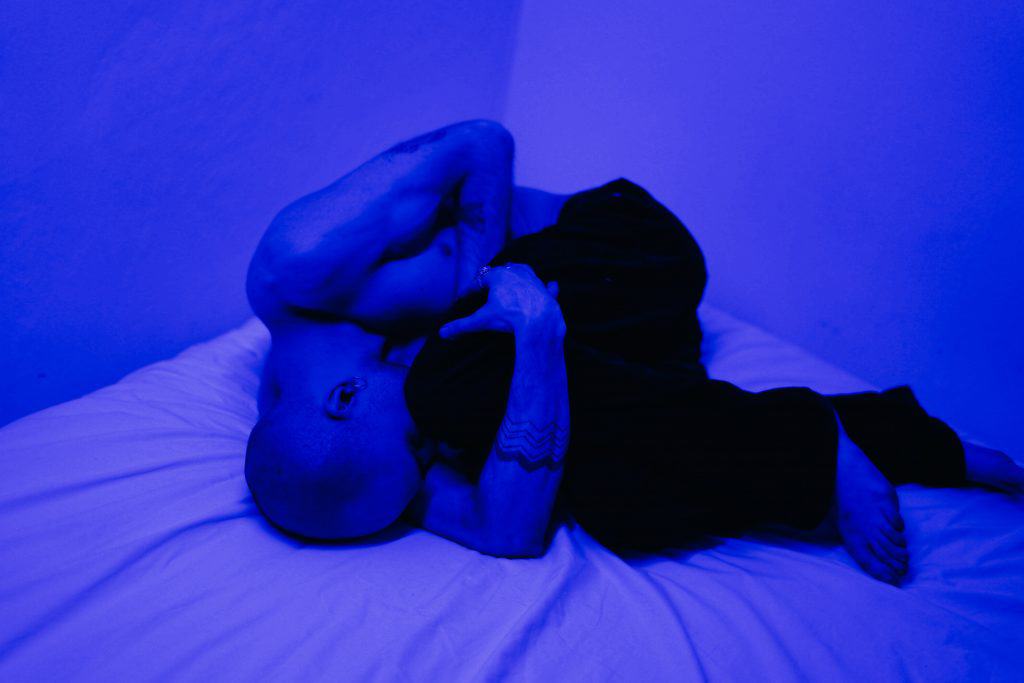
Rolfing, it’s a form of hands-on bodywork or manual therapy, and I describe it as if you melded together physical therapy and massage therapy. You probably have some degree of what could be rolfing. But essentially, it’s working with connective tissue or fascia, and with an eye for what’s happening structurally with the entire body. And so when you go see maybe certain massage therapists, you might be working much more site-specific, they’re rubbing your back because your back hurts or whatever. From a more structural integration perspective, or rolfing perspective or structural integration, you’re looking at what’s the orientation of the foot in relation to the knee in relation to the hips in relation to the neck in relation to the swing of the arms.
The goal with structural integration or rolfing is to get body-oriented. The language I use in my book is aligned so that essentially your existence by you living inside of your body, the way that you walk, the way that you breathe, the way that you look, the way that you inhabit yourself makes you healthier. You’re not continually creating these friction fires because of various misalignments throughout the body. So the end goal of rolfing or structural integration is to integrate or reorient the body in such a way that the body starts to heal itself. And that sounds perhaps kind of magical, but it’s very logical. If you have a bunch of hoses throughout your body, and there’s a bunch of crimps, there’s a crimp at the knee, hips, neck, and wrist. How would you expect for the circulation of all those fluids to circulate throughout that body? It’d be kind of crummy. So the structural integration intends to open up those kinks, and the focus is through working with connective tissue or fascia.
The end goal of rolfing or structural integration is to integrate or reorient the body in such a way that the body starts to heal itself.
Is that something that you teach people through your online programs and through the book to do themselves, or do they need somebody to do that for them?
I teach people how to do the work with themselves, and I teach people how to reorient their physical environment in such a way that their environment makes them more flexible and taller and more confident and all the things that you’d ideally like to be probably. Unless you’re like super emo and you’re literally like going into the darkness like, that’s cool too, whatever you’re into, I think it’s great. And so that’s what the book focuses on is giving people the tools on essentially how to drive your body.
We didn’t get that education. You know you got a permit to drive a car, and if you want to get a gun, depending upon what state you’re in, and you have to take a test, and you have to understand how to work all the safeties and the triggers and this and that, you got to be able to clean it. We don’t, oddly, get that with the physical body, which is, in my mind, super interesting, but that’s not a bigger focus. So it’s essentially what I did with the book and the online program. I gave people the fundamentals like the nuts and bolts of the things that you need to know on how to effectively be in your body in daily life.
There is a potential that body pains can be a bit more. It could be an underlying emotional or mental tension that is contracting the person's nervous system. Thus, bringing on headaches, back pains, and more. Share on XAnd what’s the name of the book?
The Align Method. Okay, because you keep talking about “the book,” but you never use the title of the book.
Oh, yeah, right. I gotta learn better. The Align Method. I want to call it, The Align, but the publishers wouldn’t let me, so it’s The Align Method. But it’s fine, there’s the methodology of it, I am a little bit more like Bruce Lee-ish with my ideas of a method. It’s much bigger than that. It’s more like a philosophy and a way of life. So that’s the name of the book, but the contents are much more like a way of life and like a specific method.
Gotcha. And what’s the name of your online program?
What a coincidence.
Yes. That’s broken down into six weeks segments, and we just relaunched the new version of it, which is like version 3.0, maybe 4.0. And everyone, we’re just so much more stoked about, this one I’m like, “Oh, this is great.” I’m like, really, really excited. It’s an interesting thing, like, having iterations of things. I think with people listening to this, something that might be encouraging is you just need to get an iteration out, and you need to have a step one. And so when you get that out, then it’s like you can stand back, and you can look at it and say, “Okay, that didn’t quite work.”
“So I got feedback from people saying, like, they loved that, they didn’t like that,” then you shake the snow globe up again. And then you come back, and you let the pieces fall again. And so creating an online program, creating a book, creating anything, yourself. I think it’s all how you do anything is how you do everything. And so I think having that opportunity, just like getting something out on the canvas, and then being able to stand back and examine it, that’s what we’ve done with the online program. And now we’re at I think, Canvas number four with it, and we’re finally good on that. I’m proud of it.
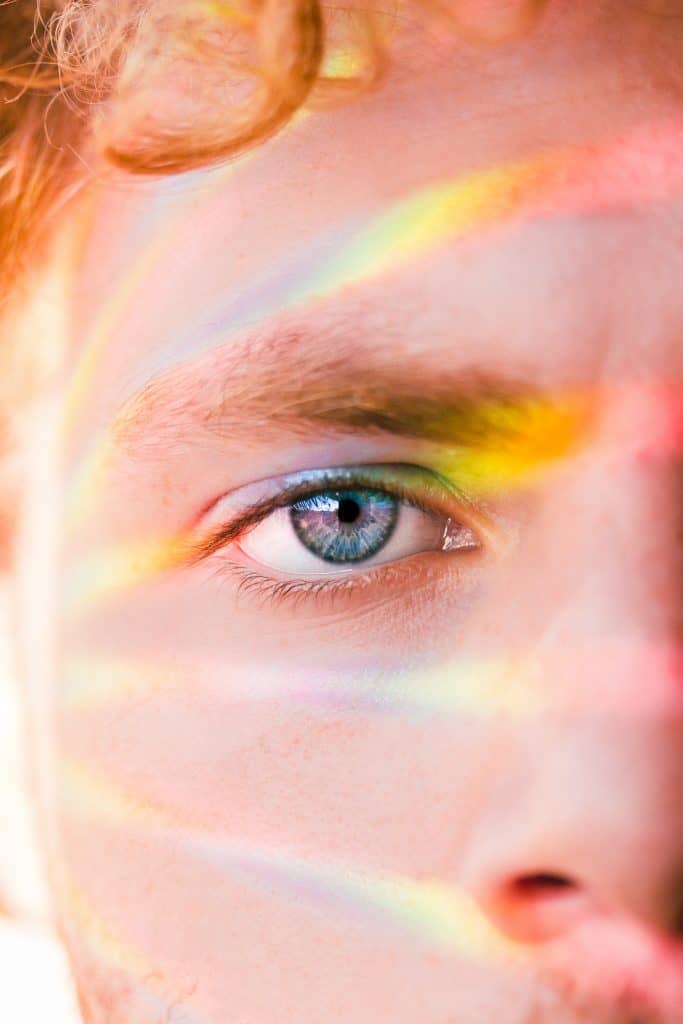
That’s awesome. And I understand you have a free masterclass for our listeners. Do you want to tell us more about that?
Yeah. So it breaks down the fundamentals of what every person ideally could be doing in their daily life to open up their hips as a big thing. And also helping with getting the neck and shoulders kind of coming out of that like staring at my cell phone, staring at my computer position. So we break down the fundamentals of exactly how to do that, and then we touch on a few other parts of the book.
One of the things would be getting into how to use your eyes in such a way that gives you more energy or calms you down or focuses you. So this, we didn’t touch on this, but it’s kind of a big Pandora’s box of conversation. But your eyes are an extension of your brain. And so when you are staring into your phone or staring into your screen or inside closed walls all day long, it’s kind of a bit activating for the nervous system. It’s kind of putting into place of focus, like, “I’m looking down at the animal or the prey in nature, I’m gonna hunt, and I have to pull in the bow back,” and I’ve got all my energy on that. Or in that myopic vision, we’re focused on. It tunes our nervous system and kind of tunes us up.
A really powerful tool that people, a little takeaway, is if you want to calm your nervous system, use your panoramic vision. So look out into the distance, take a break, look out the window, ideally get actual real full-spectrum sunlight to connect with your eyes. You don’t need to look up at the sun in the middle of the day, but just going out and not wearing sunglasses all day long is a really valuable thing. Your eyes grow; it changed shape from that. It’s at least in part, the reason that modern culture is leaning towards myopia or short-sightedness because we’re lacking that chemical reaction that manifests the product of getting sun.
It’s a big deal if you’re feeling stressed, if you’re feeling anxious, if you want to just feel generally have a little energy boost, just look out the window. And then compound that with maybe taking a walk, instead of taking a walk and looking down at your phone, which will rev you up, intentionally taking the trees taking the clouds. If you are in a room and you’re feeling stressed out, you can kind of allow your vision to go space out for a second, going into that panoramic vision. Even though you can’t look out in the distance, you can still take in the whole room, and that will tie back into your autonomic nervous system and start to calm you down a little bit.
If you want to calm your nervous system, use your panoramic vision.
So that’s why you get Zoom fatigue, it’s because you’re so focused on the people on your conference call for a solid hour, and then you have another Zoom call and another Zoom call. I have maybe 5-6 Zoom calls in a day. That’s a typical day, and it’s exhausting.
There’s a lot of levels that one, there’s a backup of you, in your body, like you want to be cycled out. So all of the fluids that are circulating through your body, they want to move. And then another thing is, you create energy in your body through movement. Piezoelectricity when you walk, when you bang your arm against a side of a desk or anything like that, like a little lightning bolt through that bone. And so, by you moving your body, you are generating electricity, you’re generating energy. And so by you being stagnant and sitting in place all day, that’s how if you leave and have a motorcycle if it sits too long, then the battery goes dead.
The human body is that battery in many senses, and if you sit too long, the battery starts to get drained. And now simultaneously you’re staring into this screen, which evolutionarily speaking your body’s like, “Okay, he needs my adrenal glands and everything to show up for me right now, because he’s focused on this thing.” It’s like the perfect storm for you to start to feel a little bit lagging afterward.
Give yourself enough spaciousness in your life, whatever that looks like to you. It could be travel or whatever you're into. Give yourself enough time to examine your decisions. Share on XUnderstood. So this masterclass, how do our listeners get access to it? Is there any kind of special offer code or anything like that they need to know as well?
Alignpodcast.com, that’s the first thing you’ll see, and then also on Instagram @alignpodcast, the link for it is in the bio, so it’s really easy to find.
Okay, perfect. Hopefully, they’ll take the next step and also sign up for your Align Method online program, get your book, subscribe to your Align Podcast.
Thanks, man.
Perfect. So thank you so much for joining us today, Aaron, and sharing your wisdom, insights, knowledge, and expertise and being vulnerable with us too. Sharing the stuff about your heart and opening up and all that. That was cool.
Thanks for making it happen, man. I appreciate it. That’s a good thing, you know there’s like fake vulnerability, which is quite annoying, especially living in LA, like people will like you more if you like lead with vulnerability. So you kind of have this spiritual bypassing, like a vulnerable bypassing layer on the outside, which is fine, but I think that’s people, something that you can do that is very simple, is kind of lead more with just being honest and what feels like relevant and real for you. And then that permits other people to do the same. And then step by step, we’re in a world that I think all of us want to spend more time in.
For sure. Well, thank you so much, Aaron. Thank you, listeners. Now, take some action and apply some of what you’ve learned in this episode.

